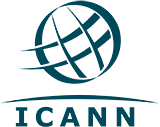SEO and SEM: Key Strategies to Increase Online Visibility
SEO (Search Engine Optimization) and SEM (Search Engine Marketing) are two fundamental approaches to improving a website's presence and visibility on search engines. SEO (Search Engine Optimization) focuses on enhancing a website's structure and content to make it more relevant and attractive to search engines like Google. This includes: Keyword Research: Identifying the words and phrases users search for related to the site's content. On-Page Optimization: Adjusting elements within the website, such as titles, meta descriptions, header tags, and content, to better align with target keywords. Technical Optimization: Improving the website's structure, loading speed, mobile-friendliness, and security (such as implementing HTTPS). Creating Quality Content: Developing relevant, valuable, and original content that meets users' needs and questions. Link Building: Obtaining quality backlinks from other relevant websites to increase the site's authority and credibility. SEM (Search Engine Marketing), on the other hand, involves using paid campaigns to increase visibility in search results. This includes: Pay-Per-Click (PPC) Advertising: Ads that appear in search results when users search for specific keywords. Advertisers pay each time a user clicks on their ad. Google Ads: The most popular platform for PPC campaigns, allowing advertisers to bid on keywords and create ads that appear in Google's search results and on its partner network. Ad Optimization: Creating and adjusting ads to maximize their relevance and appeal, improving click-through rates (CTR) and return on investment (ROI). Analysis and Adjustment: Monitoring campaign performance and adjusting strategies based on the data to improve results. In summary, SEO enhances visibility organically and sustainably, while SEM uses paid strategies to achieve quick and targeted results. Both approaches are complementary and, when used together, can maximize online presence and attract a larger number of interested users.
Read More






